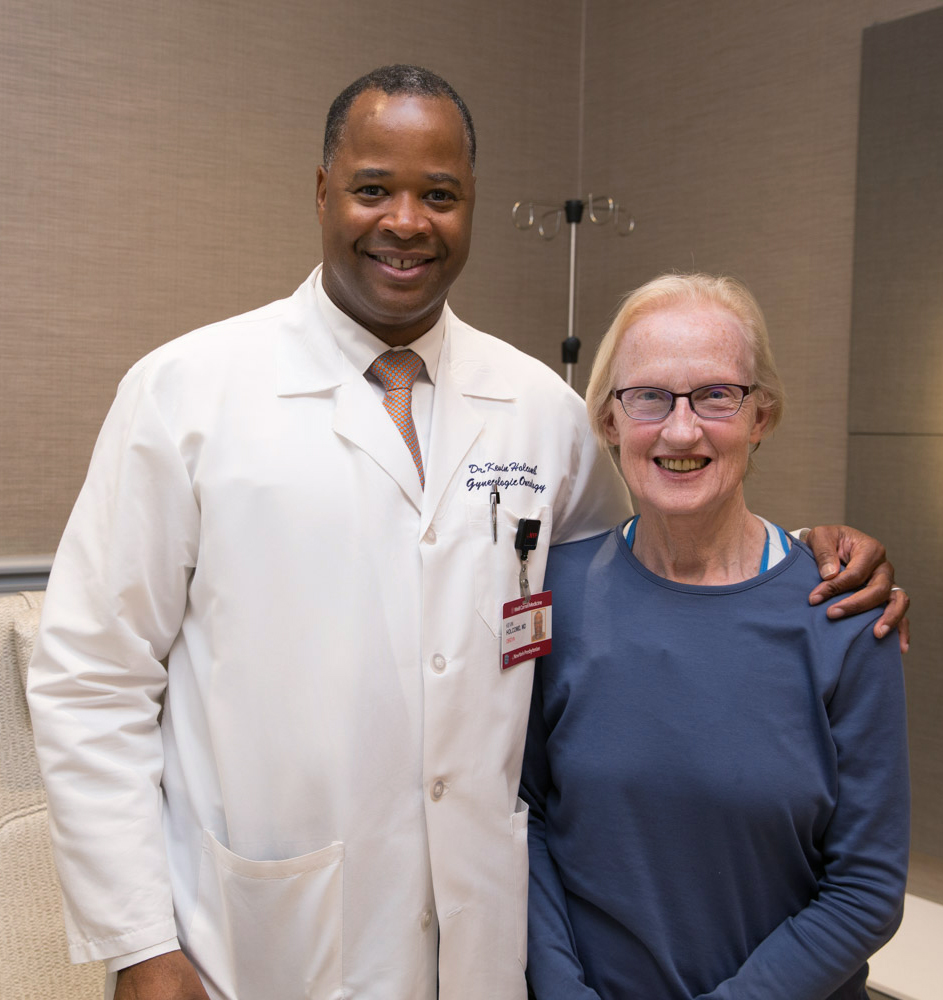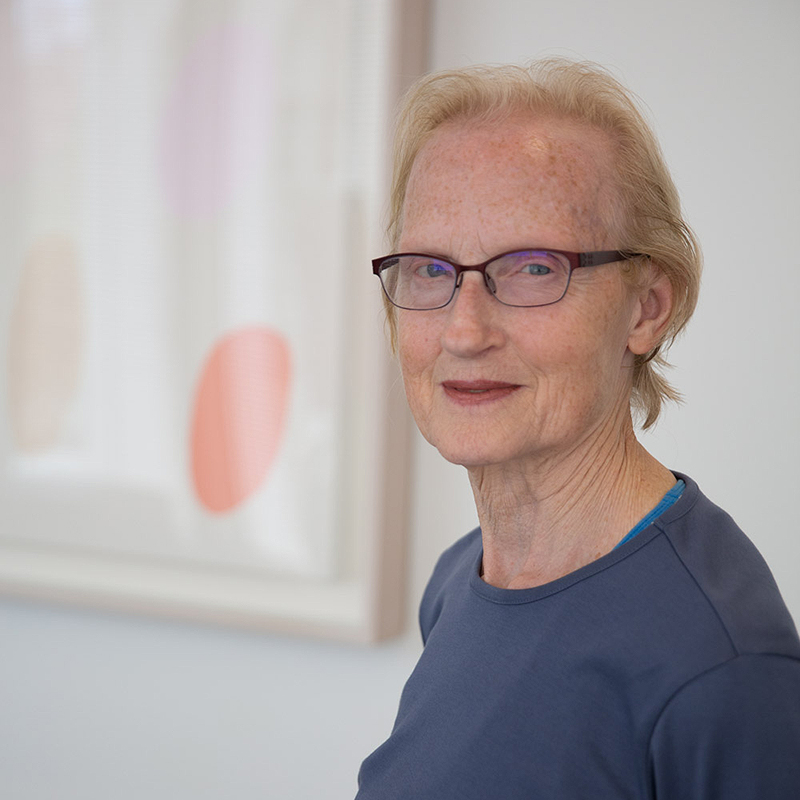NewYork-Presbyterian's Health Matters' Amazing Things: Ronda Kotelchuck
When Ronda Kotelchuck learned she had an aggressive form of uterine cancer, she was frightened and anxious about the road ahead.
Within a week of her January 2012 diagnosis, her doctor, NewYork-Presbyterian/Weill Cornell Medical Center gynecologic oncologist Dr. Kevin Holcomb, performed a hysterectomy and removed her ovaries and fallopian tubes. That July, after a course of radiation, six chemotherapy treatments, and a clean CT scan, Ronda, who was 69 at the time, was pronounced in remission.
But Dr. Holcomb had warned Ronda that her uterine cancer was a rare and highly malignant type called uterine papillary serous carcinoma, which represents fewer than 10% of uterine cancer cases but accounts for a disproportionate number of deaths. He told her that her cancer had a 20–30% chance of recurring.
Still, Ronda remained optimistic. After all, she was otherwise healthy, without a family history of cancer, other than lung cancer in her mother, who had been a lifelong smoker.
“My mindset was that this had been a single episode, hopefully not to be repeated,” says Ronda.
But less than a year later, in 2013, scans revealed two enlarged lymph nodes on the left side of her abdomen and a third enlarged lymph node in her neck area. Her cancer had returned and had spread into her lymph system.
“I dug out of him what he would expect in terms of time,” Ronda recalls of her conversation with Dr. Holcomb. “He said somewhere between six months and two years.”
Ronda and her husband, Dave, left Dr. Holcomb’s office, stunned. But as they processed the news, Ronda found something pushing her forward: resolve.
“I am a fighter,” she says, “and I was certainly not going down without a fight.”





